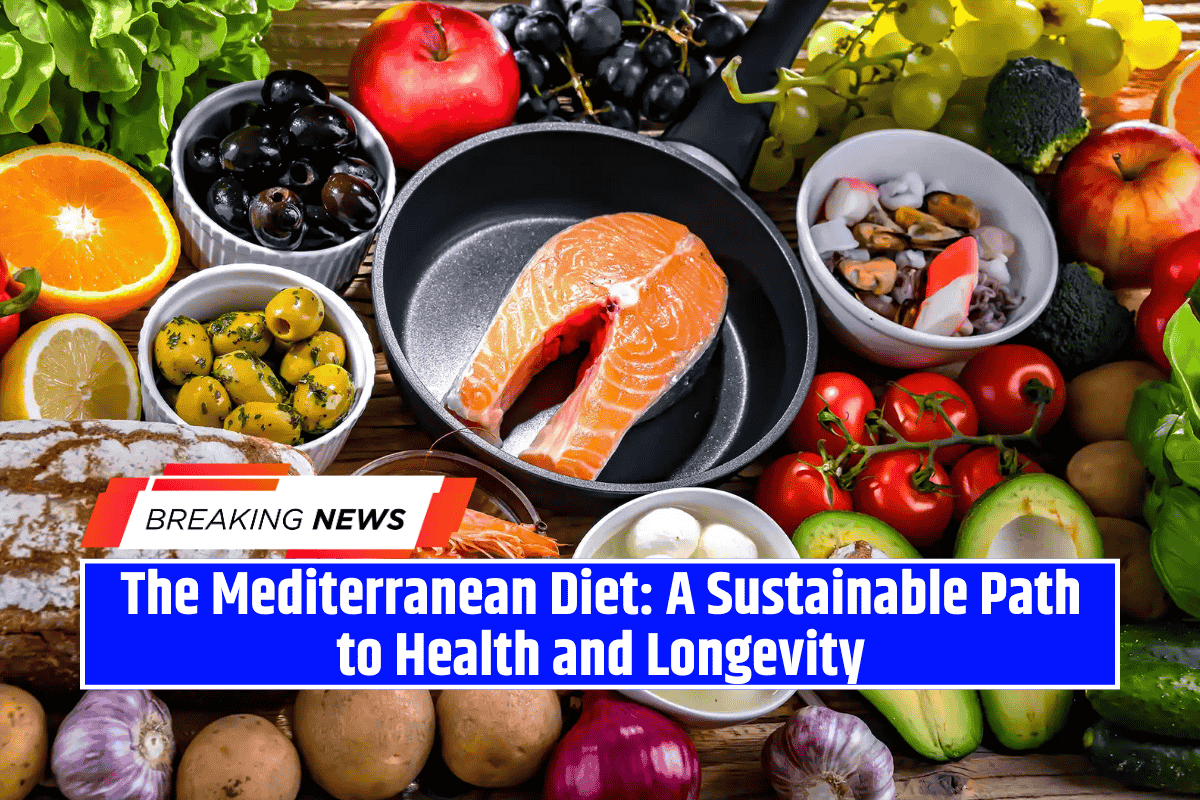The Mediterranean diet emphasizes plant-based foods such as whole grains, beans, nuts, fruits, vegetables, and extra-virgin olive oil.
Popular in countries like Greece, Italy, Spain, and Turkey, the diet also includes seafood and lean poultry in moderation, with minimal red meat. Unlike restrictive diets, it focuses on overall food quality and lifestyle.
Is It Easy to Follow?
Yes — the Mediterranean diet is considered one of the easiest and most sustainable diets. It does not ban food groups or require strict calorie counting. Instead, it provides flexible guidelines adaptable to different cuisines and lifestyles. This makes it easier to maintain long-term compared to restrictive diets.
How Does the Mediterranean Diet Work?
There isn’t a single “Mediterranean diet,” but all regional variations share common principles:
- Plant-focused meals with whole grains, vegetables, beans, and nuts.
- Olive oil as the primary fat source.
- Moderate seafood and poultry, minimal red meat.
- Whole, minimally processed foods.
A traditional Greek-style Mediterranean diet is roughly 40% carbohydrates, 40% healthy fats, and 20% protein. It supports heart health, reduces inflammation, and lowers the risk of chronic diseases.
How to Get Started
- Treat meat as a side dish and vegetables or grains as the main.
- Swap desserts for fruit-based treats like grilled peaches with yogurt and cinnamon.
- Explore Mediterranean recipes from Greece, Italy, Spain, and beyond.
- Plan snacks and meals in advance to stay consistent.
Can the Mediterranean Diet Help With Weight Loss?
While not designed specifically for weight loss, its emphasis on fiber-rich foods and healthy fats can help manage weight by promoting fullness and improving metabolic health. However, mindful portion control is important, especially with calorie-dense foods like olive oil and nuts.
Health Benefits of the Mediterranean Diet
- Reduces risk of heart disease and stroke.
- May help prevent cognitive decline and dementia.
- Lowers risk of Type 2 diabetes.
- Eases symptoms of inflammatory conditions like arthritis.
- May support better mood and reduced depression.
Health Risks of the Mediterranean Diet
The diet is widely considered safe, with no significant risks when followed properly.
Foods to Eat on the Mediterranean Diet
- Olive oil (extra-virgin)
- Fresh fruits: berries, figs, peaches, apples, mangoes
- Vegetables: spinach, kale, zucchini, eggplant, sweet potatoes, carrots
- Whole grains: quinoa, oats, farro
- Legumes: chickpeas, lentils
- Nuts and seeds: almonds, walnuts, chia, flax
- Dairy alternatives: plant-based milks, Greek yogurt
- Lean proteins: chicken, turkey, salmon, tuna, eggs
- Herbs & spices: basil, oregano, rosemary, thyme, garlic
Foods to Limit
- Red meat (occasional garnish rather than a main).
- Sweets (occasional treats, not daily indulgence).
- Processed foods and processed meats.
- Sugary drinks and fruit juices.
- Whole-fat dairy (ice cream, heavy cream).
- Butter (replace with olive oil).
- Excessive alcohol (moderate red wine acceptable for some).
Tips and Advice From Real Experience
Bob and Carolyn Rowley, a couple in their late 60s, tried the diet through Oldways’ 4-week Mediterranean challenge. They cut back on sugar, red meat, and processed foods, while enjoying colorful dishes like pasta puttanesca, panzanella salad, and baba ganoush.
After a month, Carolyn’s cholesterol and blood pressure improved, both felt more energetic, and they found themselves biking more often. While Bob initially missed red meat, the variety of Mediterranean meals kept him satisfied.









